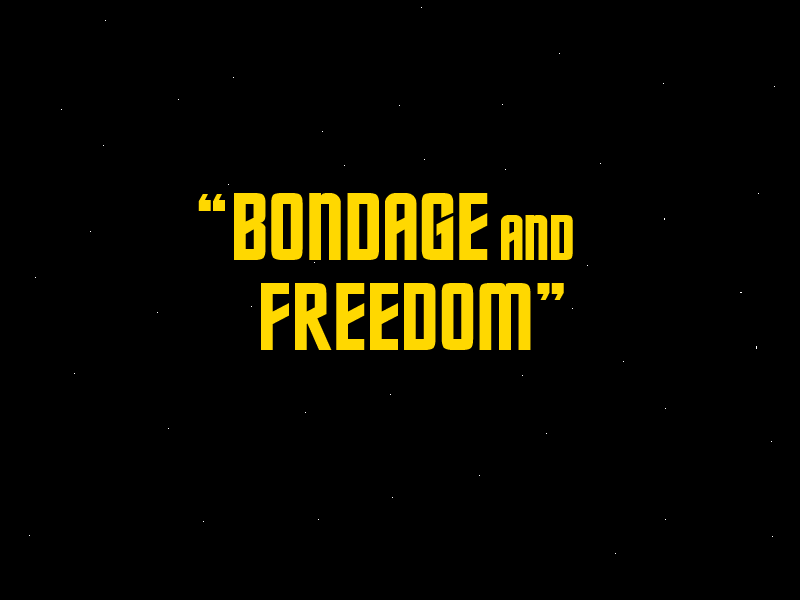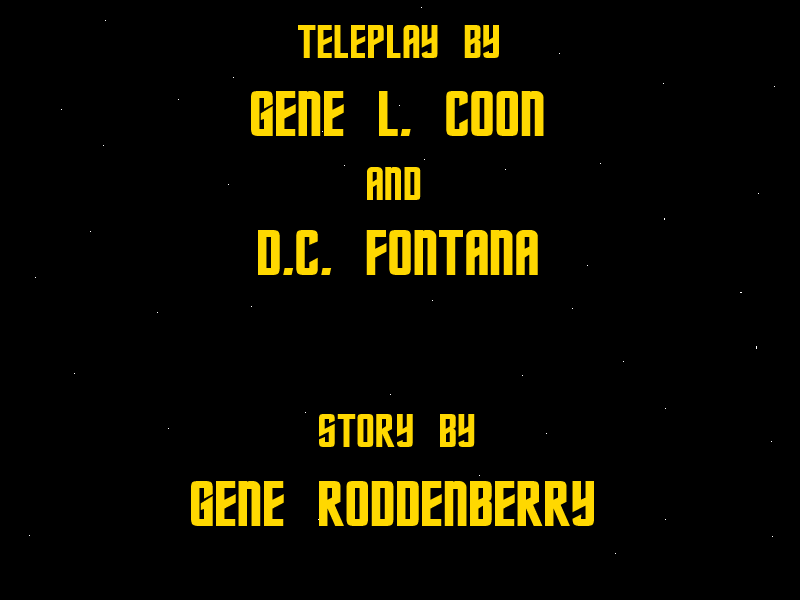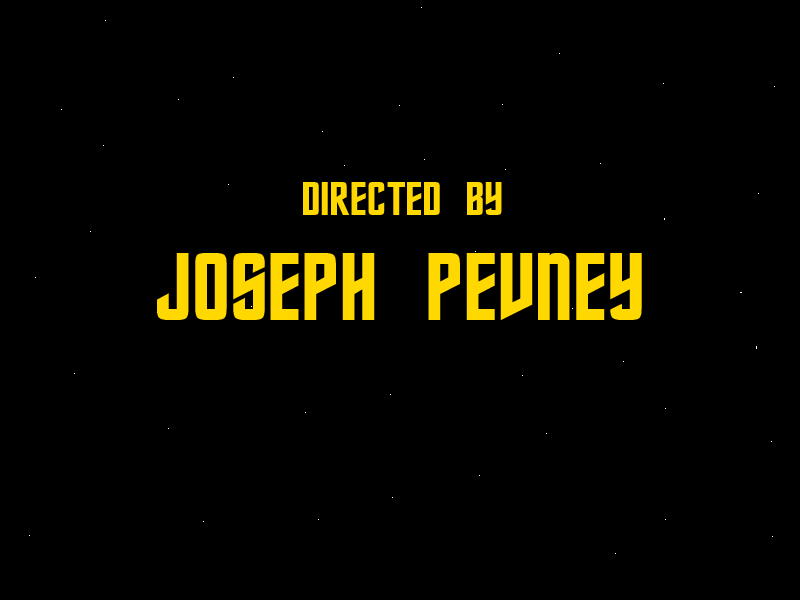Thank you all for your responses to the latest entry in the
Star Trek Episode Guide! I thought that would be a nice surprise, so I hope that you all enjoyed it!
And now, as always, for my latest responses to your latest replies...
Which is a commentary on the nature of electoral systems. In a good system they'd correlate every time. How can a party gain votes but lose seats?
You're more than welcome to discuss the merits of various electoral systems in the Chat forum, but suffice it to say that FPTP (First-Past-The-Post, the proper name for "winner-take-all")
is not intended to correlate with the overall popular vote; the winner of the most votes
in each constituency wins that constituency. Some people find this lacking, unproportional, or unfair, and have devised alternative systems, some of which date back to the nineteenth century.
And besides,
psephologically speaking, FPTP is by far the most fun and exciting electoral system

Shevek23 said:
In a winner-take-all system like the US has pretty much universally, that's a rhetorical question. But I thought Canada had some kind of proportional representation?
Maybe not ITTL, or not yet?
MPs have been returned to the House of Commons under the FPTP system for its entire history. Some of the provinces (especially those with multi-member constituencies) have used runoff systems in the past, but at present (IOTL,
and in the late 1970s ITTL) all are using FPTP. Electoral reform
has been the subject of multiple referenda throughout the country in recent years (IOTL), but all have failed, and the subject is considered off the table for the foreseeable future.
No, Canada has winner take all. New Zealand has MMP. Australia has IRV.
Correct, though MMP was not instated in New Zealand until 1994 IOTL.
Well for a start there's no Lib-Lab Pact ITTL to damage the reputation of the Liberals. It looks like you've taken that into account with the number of Liberal seats going up by 6 ITTL, compared to the drop of 2 seats OTL.
Indeed so - we're looking at seat numbers comparable to what the Liberal half of the SDP-Liberal Alliance achieved in the 1980s.
NCW8 said:
What's also interesting is how the Labour Party is going to react. Michael Foot has just lost a General Election so he'll probably stand down as party leader. Will his replacement be another left-winger or some-one more moderate ? If the former, how will Labour right-wingers react ? With the Tories under more moderate leadership than OTL, I suspect that they'll be less likely to try and form a new party, but there might be a couple of defections to the Liberals.
Don't get ahead of yourself. Wilson didn't stand down after losing in 1970, after all, and neither did Kinnock after 1987.
NCW8 said:
However as Britain is not a member of the EEC, Roy Jenkins won't have been appointed President of the European Commission and so will still be a Labour MP ITTL. IOTL he came third in the Labour leadership elections in 1976, so he's a good candidate to be a moderate replacement for Foot.
An
intriguing proposition.
For those of you unfamiliar with swing, you clearly need to be introduced to the
Swingometer. Or search for "swingometer" on Youtube if you really want to get a flavour of UK election coverage.
Although the Swingometer generally talks about
uniform two-party swing from one party to another (invariably the Tories to Labour, or vice-versa), at least in this era.
@ Brainbin re: Rankin/Bass Tolkien - to each their own - as I consider that a pretty good snip of their ROTK if you didn't find it worth pursuing then best not.
Thank you for understanding, Glen

Seems Madge Sinclair gets to be or do something first in Star Trek in every timeline...
Very well said, LordInsane

My decision to cast two black actors who appeared in the OTL movies served me very well indeed!
So, two Constitutions class starships go to a planet. The entire crew of one gets captured, along with a substantial fraction of the key characters from the other...and no redshirts die, and both ships survive? This might be the most successful joint mission in Starfleet history!

Ebonia IV, like some (but not all) Terran slaveholding societies (including, not surprisingly, the Antebellum South) views their property as
far too valuable to simply kill off when they could instead be put to productive work. That's part of the reason they were established as not spacefaring; to avoid comparisons to the other famous slaveholding society, the Roman Empire, which engaged in wars of conquest primarily to collect additional slaves, and often put them to work in the mines, where they had perilously high mortality rates. But yes, this is a quirky episode: every redshirt lives
and Captain Tracey is the first Starfleet Captain other than Kirk to be seen alive, and to remain so by episode's end (a scene with Kirk and Tracey biding each other farewell from their respective bridges at the end of the episode was filmed, but cut for time).
Great post. Say, will we ever get to see a definitive list of every episode of
Star Trek ITTL, perhaps with a short description for each? I was reading Memory Alpha's
list of unproduced TOS episodes, and was wondering how many of them got made ITTL. "Machines Are Better", "Miss Gulliver", "The Shadow of Space", and especially "Sketches Among The Ruins of My Mind" sound like they would be interesting (as do "Aladdin's Asteroid" and "The Surrender of Planet X", if only because the titles sound delightfully silly).
Thank you, vultan!

And yes, one of my key objectives for the Revised and Definitive Edition of
That Wacky Redhead is a
complete summarized episode guide for all five seasons of
Star Trek, and the Memory Alpha page is one of my key sources. Others include, obviously, episodes of TAS and planned scripts for
Phase II. However, that's probably at least a year out from now, and quite possibly longer. Likewise, some of those episodes on the Memory Alpha page wouldn't be made, simply because (given their dates of submission) they were obviously judged inferior by Coon, Fontana,
et al. IOTL., and even I can't have them spinning
too many miracles

I happened to be looking around a Doctor Who wiki and was reminded of this thread after noticing one of the characters was named "Mark Seven". He was an android- though one wonders if he had a connection to Gary...
Well, not ITTL, at any rate, where Gary Seven never got any further than a rejected pilot script, as "Assignment: Earth" never aired as an episode of
Star Trek.
Orville_third said:
On a totally different topic, is the BBC doing Christmas tapes ITTL?
I don't see why they wouldn't be.
So did the writers and producers of "Bondage and Freedom" ever give credit to Robert Heinlein and "
Farnham's Freehold?"
From what I can remember of the novel the only similarity is that the core group are white people who find themselves in a society where blacks are dominant and enslaving white. Who they are, how they get there and how its all resolved are considerably different. Therefore I doubt there's any need, unless someone involved said that the book gave them the idea in some way.
I'm inclined to agree with Steve.
Farnham's Freehold plays out completely differently from "Bondage and Freedom" - ironically, it's actually
closer to
Planet of the Apes than the episode, despite the latter consciously, well,
aping it

And let's face it, any hack writer could come up with "black slaves, white masters" in about five minutes (not that I'm calling Heinlein, Coon, Fontana, or even Roddenberry hack writers). It's a classic role-reversal scenario. Besides, Heinlein almost certainly wouldn't go after them for something like that
anyway - he didn't for "The Trouble With Tribbles" IOTL (and ITTL), after all, even though in that case he had far more of a leg to stand on.


